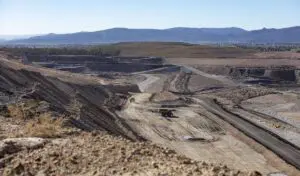A landmark legal decision has raised substantial new questions about the status of a key national forum of energy ministers and could shed new light on previously confidential discussions led by federal energy minister Angus Taylor, particularly over crucial energy market reforms.
The Administrative Appeals Tribunal has ruled that the ‘national cabinet’ system created by prime minister Scott Morrison is not protected by the disclosure and confidentially protections that apply to the federal cabinet, meaning it will face pressure to release details of its meetings with state energy ministers.
The decision was the result of an appeal launched by independent senator for South Australia, Rex Patrick, against a Department of Prime Minister and Cabinet refusal to grant to documents relating to the National Cabinet under freedom of information laws.
The national cabinet was formed last year by Morrison in the early stages of the Covid-19 pandemic and was seen as necessary to provide a forum for federal, state and territory leaders to meet and coordinate their responses to the outbreak.
But concerns have been raised around the extent to which it has been used by the Morrison government to take greater control over a wide range of policy forums, including ministerial co-operation on energy policy.
The detailed decision of the Administrative Appeals Tribunal, delivered by federal court justice Richard White on Thursday, rejected the premise that the National Cabinet is a part of the federal cabinet, and dismissed claims that its proceedings are protected by federal freedom of information laws.
The decision, which will no doubt be appealed by the Morrison government, found that the membership of the ‘national cabinet’ primarily consisted of representatives of state and territory governments and operated in a way that was distinctly separate from the federal cabinet.
Because of this, it was not possible to legitimately argue that it should be covered by exceptions in freedom of information laws that prevented the release of ‘national cabinet’ documents.
The findings will almost certainly apply to the energy focused national cabinet sub-committee chaired by federal energy and emissions reduction minister Angus Taylor – meaning that state and territory energy ministers may be able to be more outspoken about the policy issues being discussed at the forum.
The Energy National Cabinet Reform Committee was created as an alternative to the earlier COAG Energy Council, which had become a highly contested forum where state and territory ministers vented their frustration over the federal government’s lack of meaningful climate and energy policies.
Since the creation of the Energy National Cabinet Reform Committee, under the ‘national cabinet’ umbrella, state and territory energy ministers have not been able to disclose or talk publicly about the deliberations and decisions of the body.
The Australia Institute has now called on the Morrison government to release details of the proceedings of Energy National Cabinet Reform Committee, including work that has underpinned the preparation of the Energy Security Board’s controversial post-2025 redesign of the National Electricity Market.
The ESB recently delivered its proposed package of market reforms to energy ministers, but aside from minor leaks relating to a proposed financial mechanism to financially reward coal and gas generators, the details of these recommendations have largely remained confidential.
“Last week a fragment of the Energy Security Board’s Post 2025 Market Design Recommendations paper was leaked and federal minister Angus Taylor has used it to campaign for a capacity market that would support coal power stations,” the Australia Institute’s energy regulatory lead Dan Cass said.
“State and territory ministers are staying out of the debate and respecting the so-called ‘cabinet confidentiality’ of the Board’s recommendations. It is inappropriate for one government to advocate for an intergovernmental energy policy that is secret.”
“If the federal government makes the Energy Security Board’s report public now this will help restore integrity to the process before ministers meet to consider the recommendations on August 20th.”
The office of Angus Taylor and the Department of Industry, Science, Energy and Resources have been contacted for comment.










